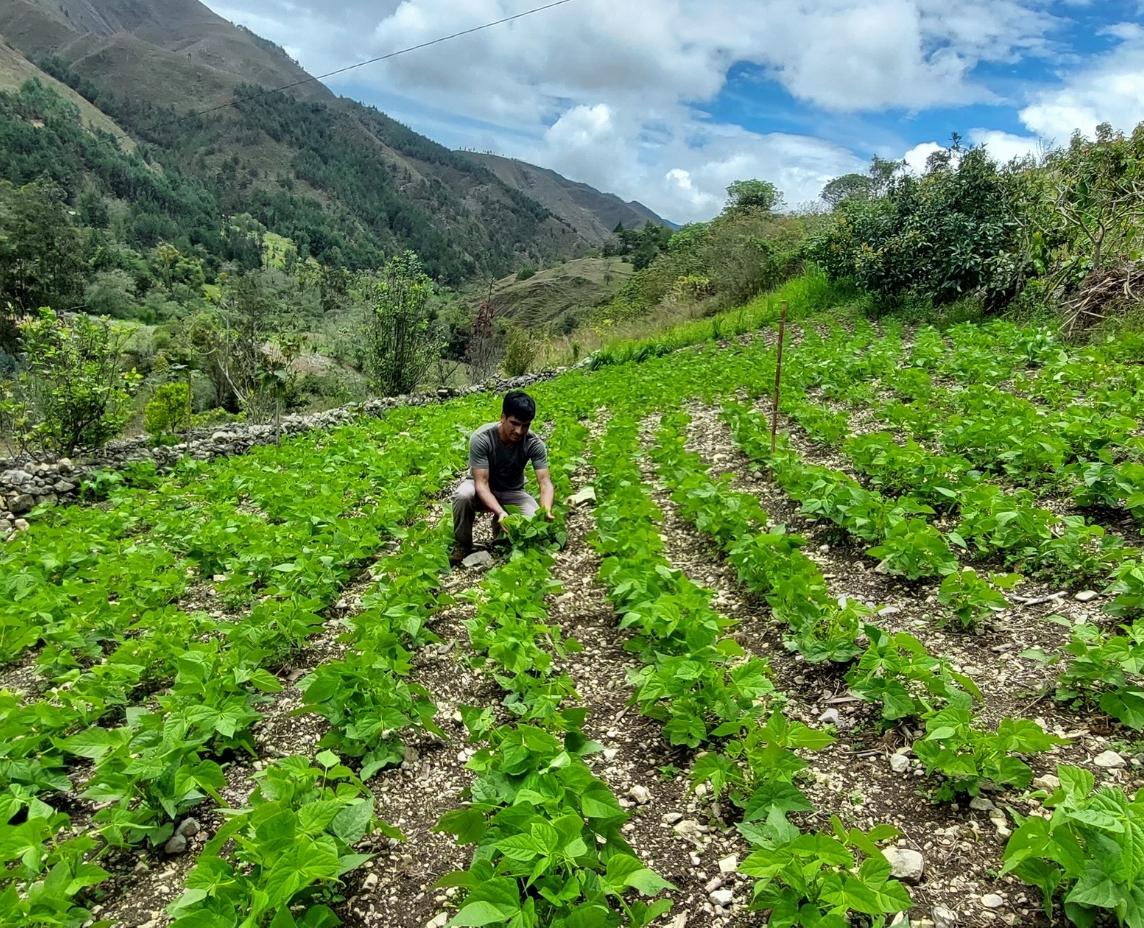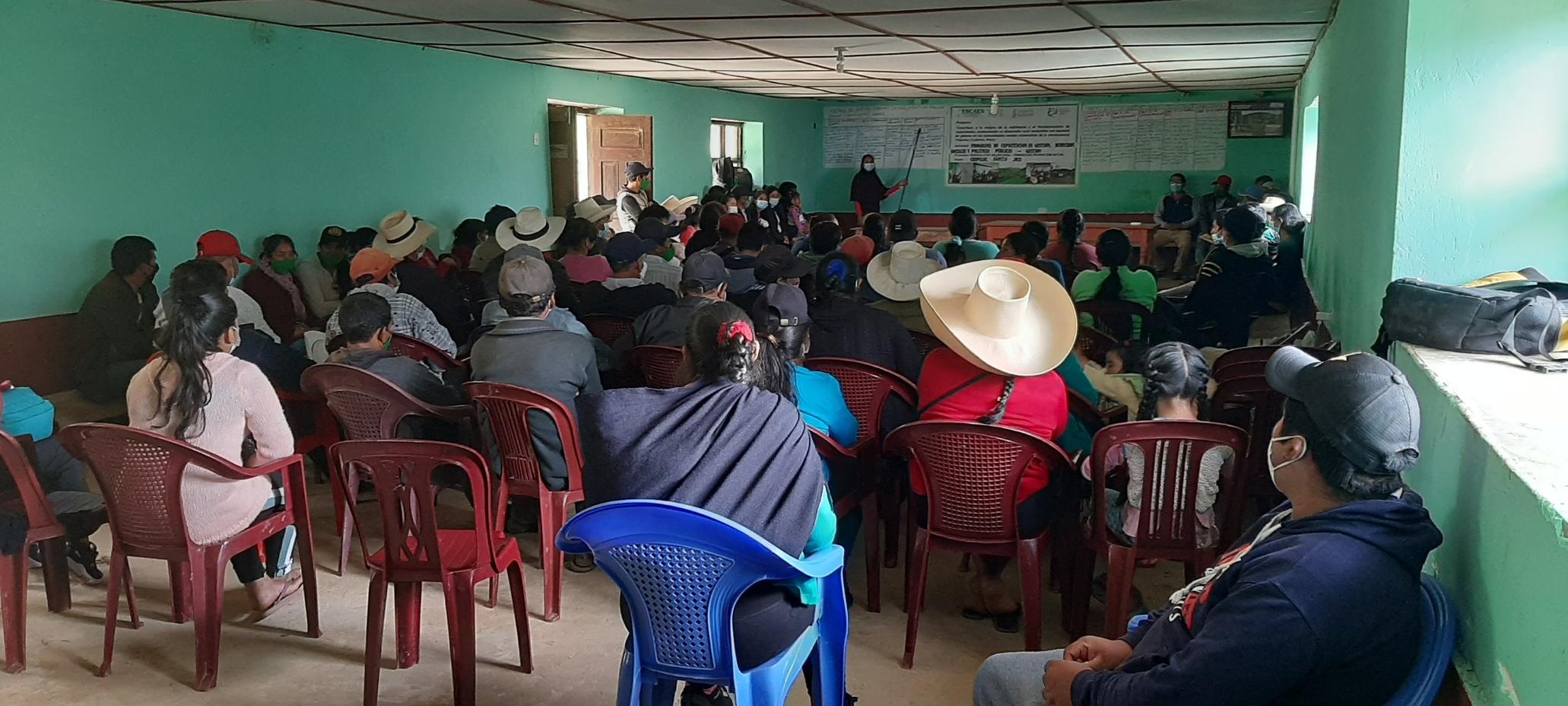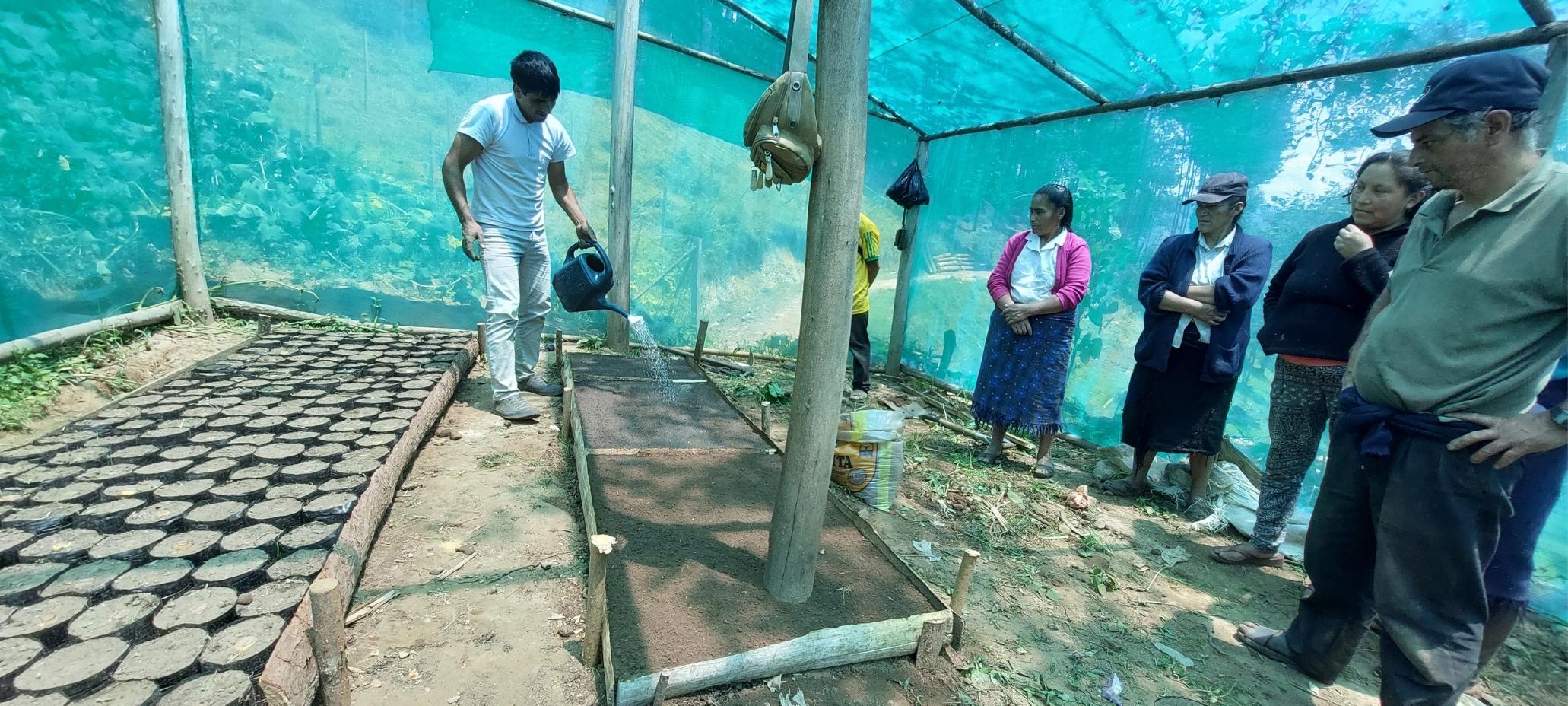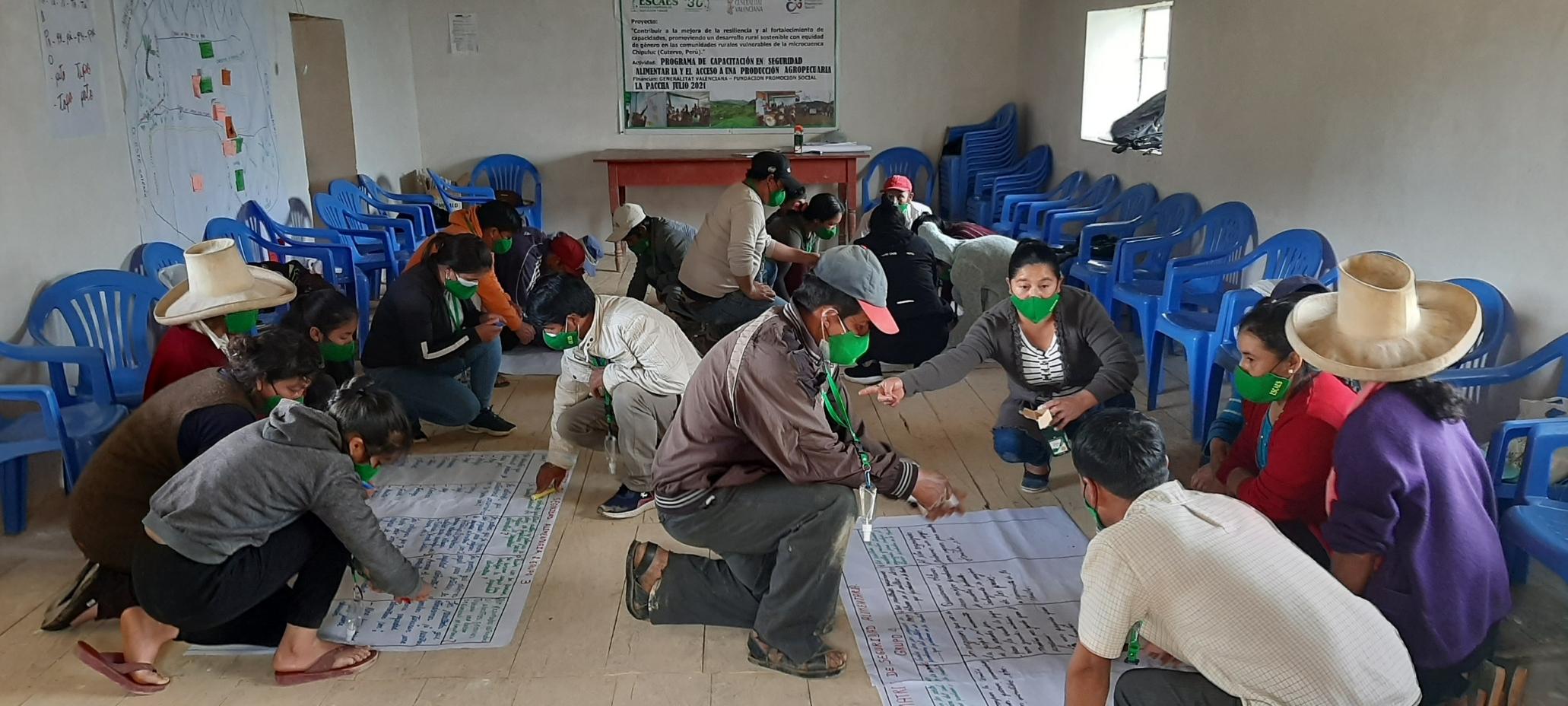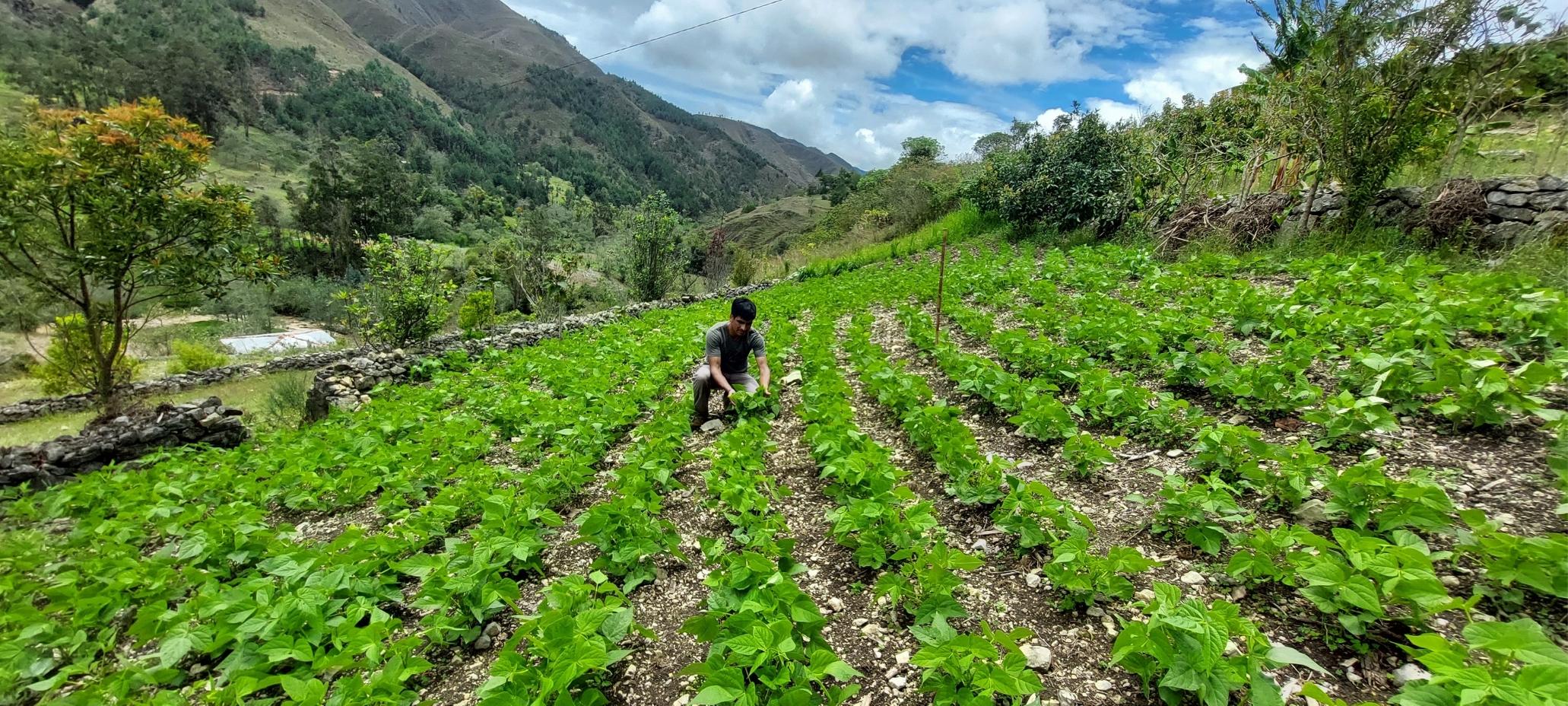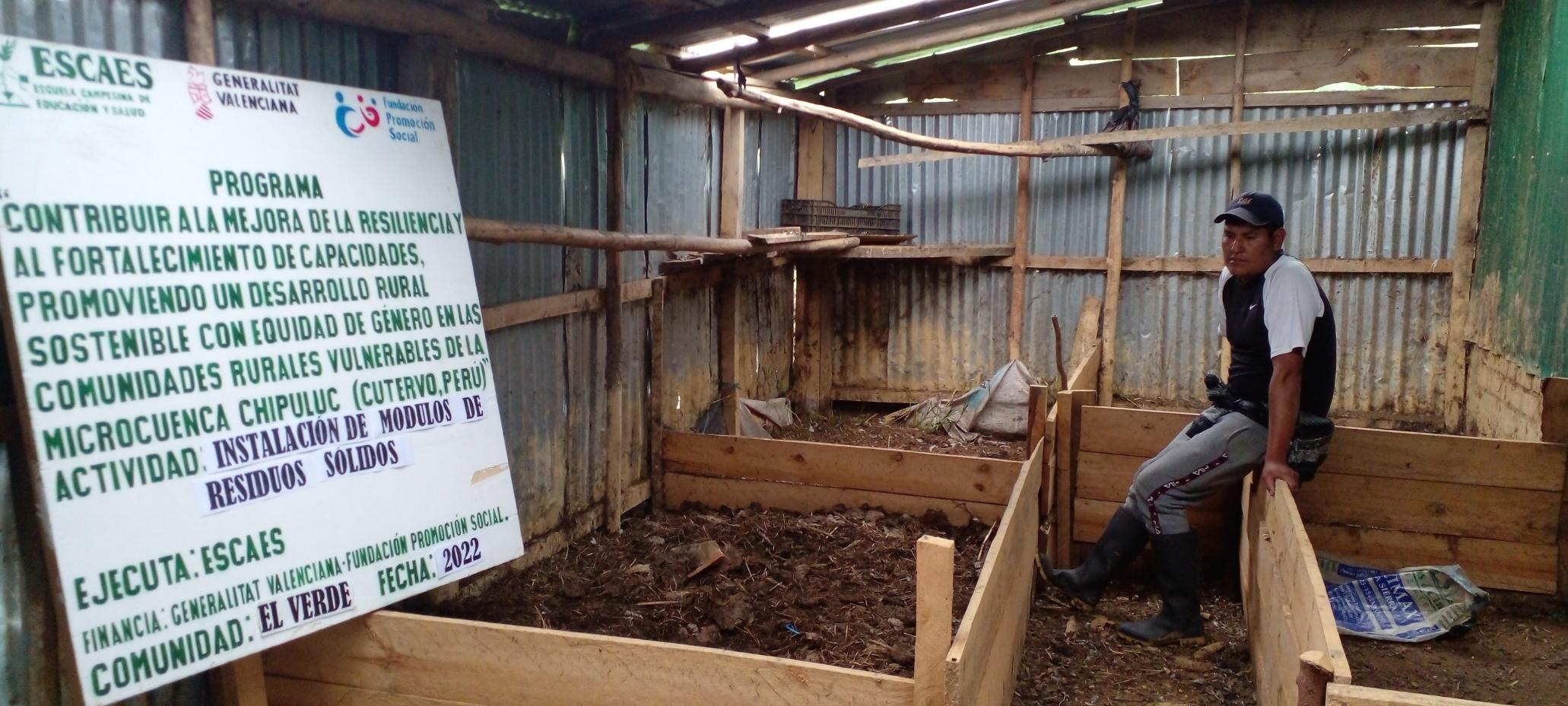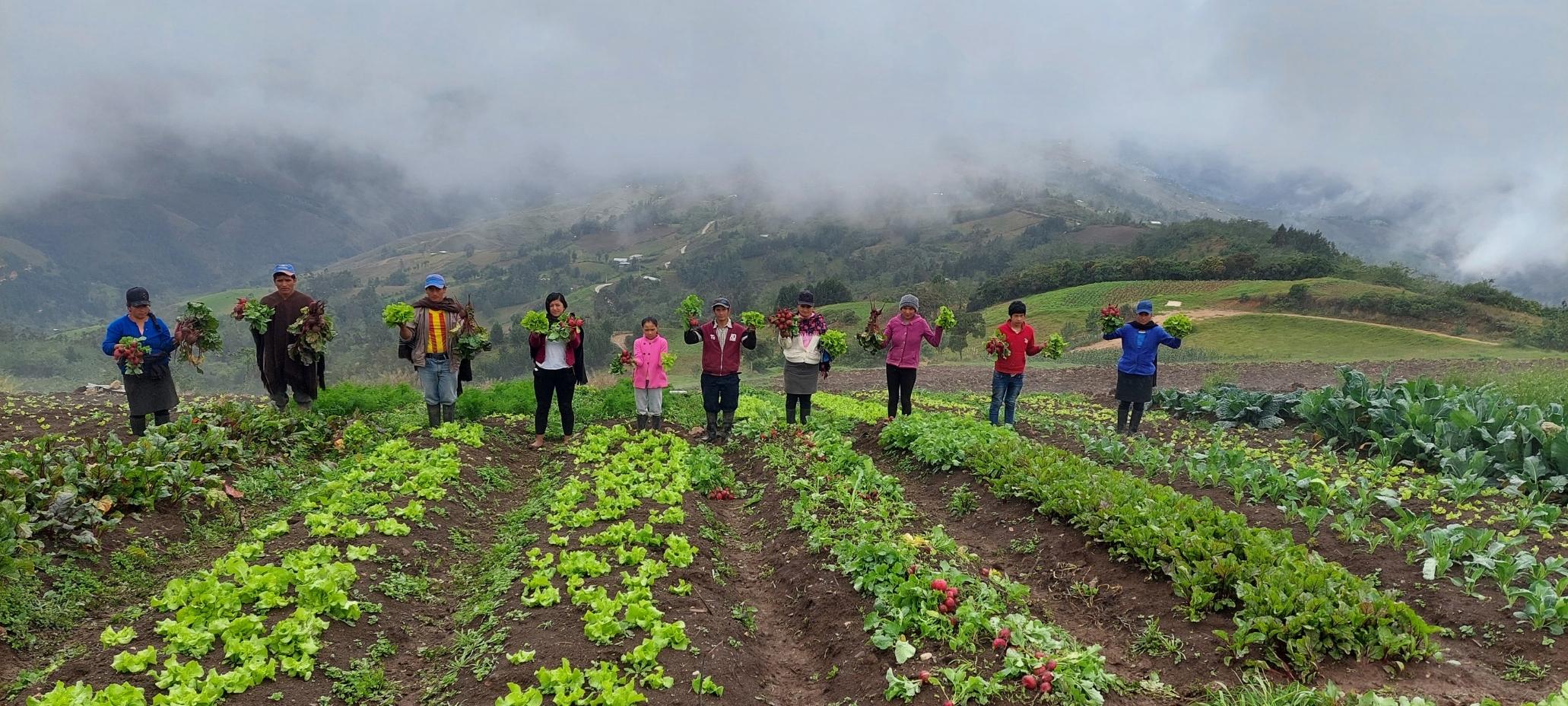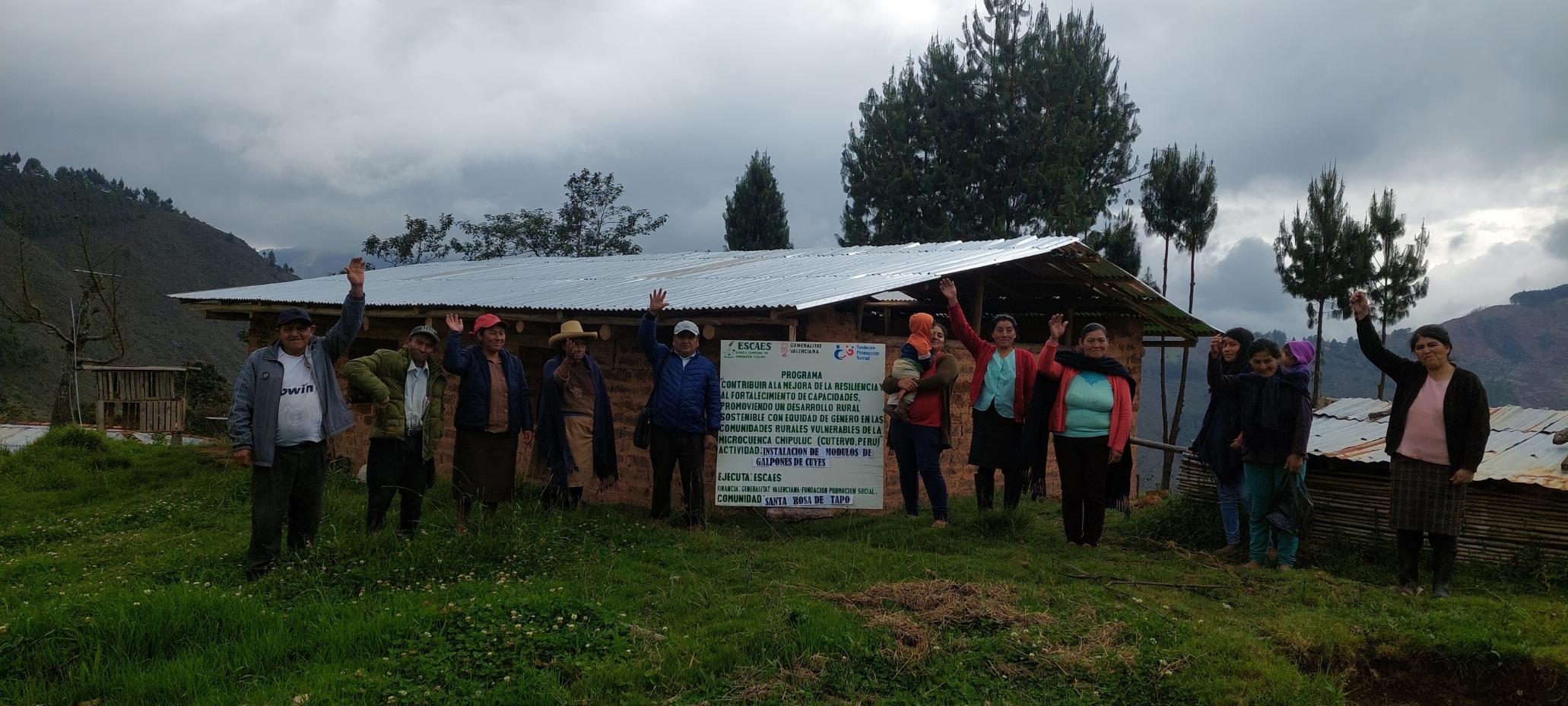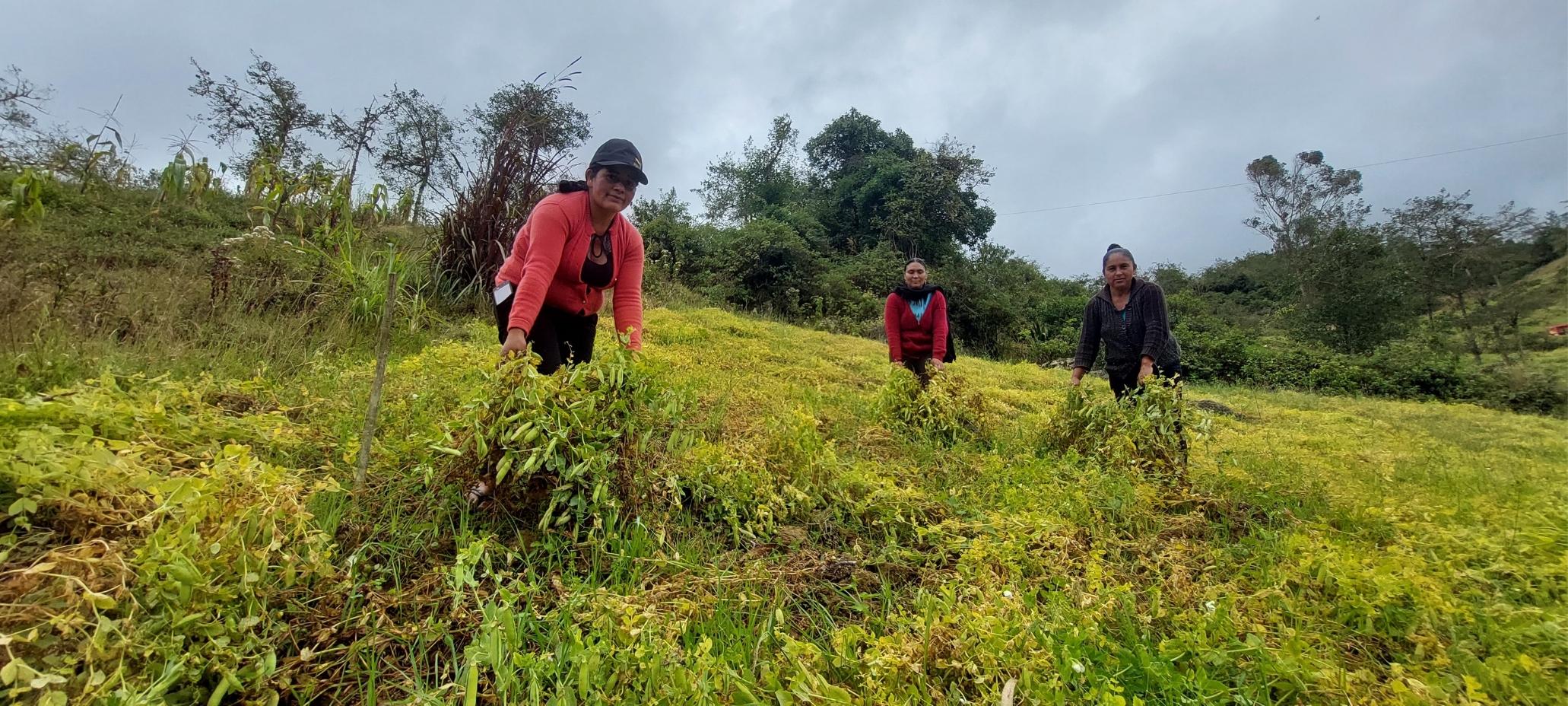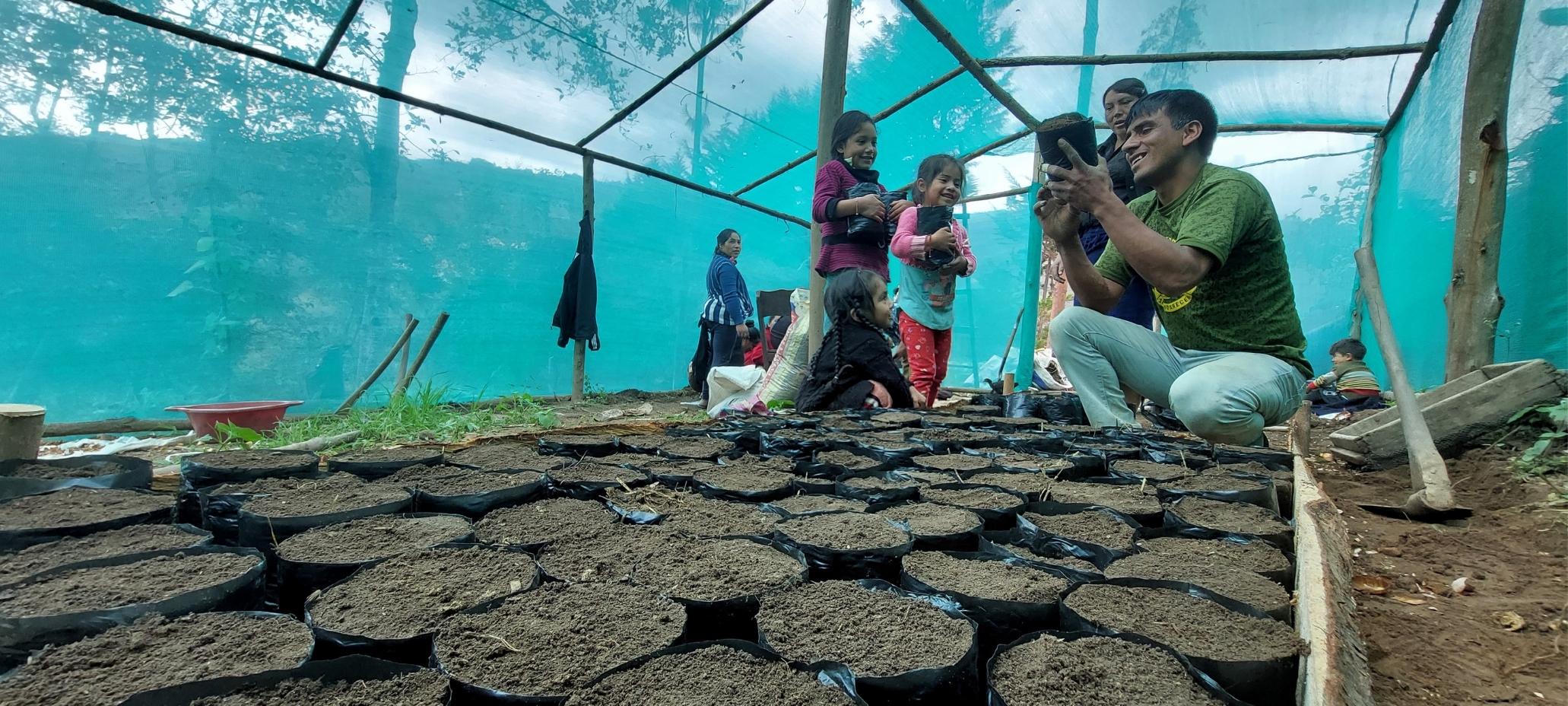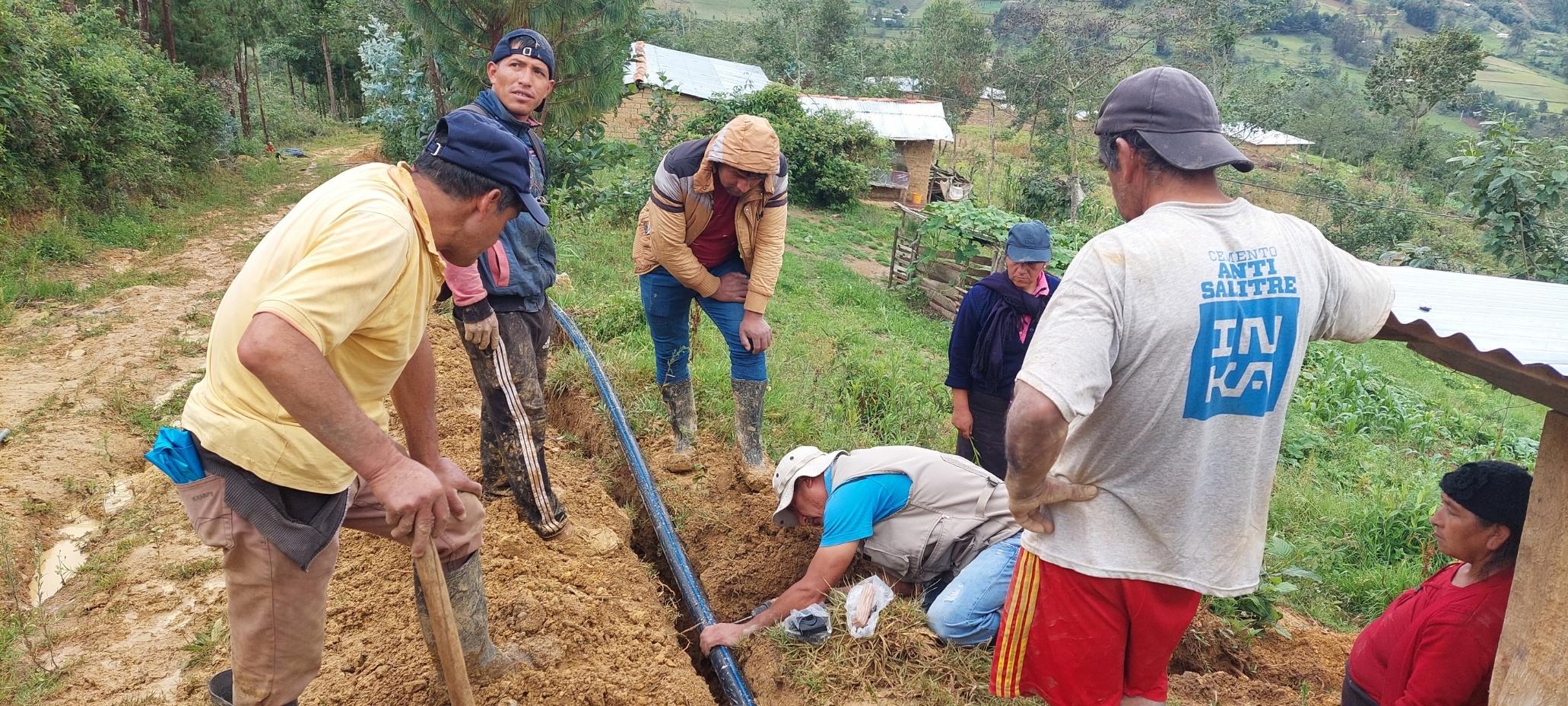30 families from the community of Tuyo Tuyo and 29 in Chipuluc are going to experience a vital change by incorporating mobile sprinkler irrigation techniques in their more than 40 hectares of crops.
This is one of the measures of the project that the Social Promotion Foundation has been developing for a year, together with its local partner Farmer School of Education and Health (ESCAES), and funding from the Regional Government of Valencia, to promote the right to food adequate and sustainable development of the rural population of 10 communities of the Chipuluc Micro-basin (department of Cajamarca, Peru).
During the first six months of project execution, the programming of training and the provision of agricultural and livestock production resources to men and women farmers in this rural area have resulted in greater food availability. This has allowed them to have surpluses for the market and raise their income level.
Some activities have also been developed for the agricultural exploitation of 100 hectares.
For this, training is being carried out on the production process that allows these families, especially women, to identify and prepare the land for cultivation with the incorporation of organic matter, and contemplate or improve aspects such as planting, composting, weeding, integrated pest management, harvesting and marketing.
On the other hand, seeds of high genetic quality have been acquired and the necessary seeds and inputs for the production of beans, cereals, vegetables, fruit trees and pastures have been delivered.
Another important source of income for these families is raising guinea pigs, and within the framework of the project, 17 breeding modules have been installed in the communities of Cajerón, El Verde, El Arenal, San Lorenzo and Santa Rosa de Tapo. Each module has the presence of 3 women who make up the exploitation committees. They currently have 595 guinea pigs, 510 females and 85 males, and more than 7 new hectares dedicated to pastures for proper feeding.
17 modules of the 50 planned for laying hens have also been installed in the community of Tuyo Tuyo, Chipuluc, La Paccha, Yangachis and Llipa. These modules, directed by women, already have 810 laying hens, whose manure is also used for agriculture.
Both animals (hens and guinea pigs) have suitable characteristics for their upbringing in the area, and their consumption will help guarantee access to food (meat and eggs) rich in protein and necessary for a balanced diet for the population.
On the other hand, 7 training workshops on food security and sustainable agricultural production have been developed in which 20 women and 10 men have participated in the communities of La Paccha, Yangachis, San Lorenzo, Tuyo Tuyo, El Verde, Santa Rosa de Tapo. and Llipa.
Within the framework of the project, a total of 100 improved kitchens have been installed in 8 communities that contribute to optimizing health and safety conditions during food preparation, mainly for women.
To promote the conservation and recovery of more than 20 hectares of soil, 10 agro-conservation committees have been organized to build terraces, infiltration ditches and living barriers with native forest species. In addition, 10 community nurseries have been built to produce and learn about native forest species such as red alder, white alder and pink cedar.
Likewise, 4 awareness workshops on adaptation to climate change have been developed, aimed at 20 women and 10 men in the communities of El Arenal, El Cajerón, La Paccha and Yangachis. These trainings address topics such as what climate change is, what its causes and consequences are.
100 family solid waste management modules and 100 compost bins have also been installed for the classification and management of organic and inorganic waste and the production of fertilizer in each community.
Finally, 4 vermiculture modules have been installed, led by women, for the production of earthworm humus, which helps improve soil fertility.
The project strengthens the organizational, participatory and management capacities of local organizations, promoting the exercise of social rights (basic social and economic conditions necessary for a life in dignity and freedom, highlighting issues such as work, social security, health, education, food, water and housing) and knowledge of public policy. For this, the training program ‘What is management?’ has been developed, aimed at 50 leaders, men and women, and 30 Community Authorities of the Organization of Peasant Rounds of the Chipuluc Micro-basin.
Finally, the project aims to promote women’s equal access to productive resources and income-generating opportunities and to help remove barriers to it. To this end, 10 culture circles have been created and put into operation to strengthen knowledge, in which 20 women and 10 men participate from each community (300 people in total). Each culture circle has a local that serves as a training center.





